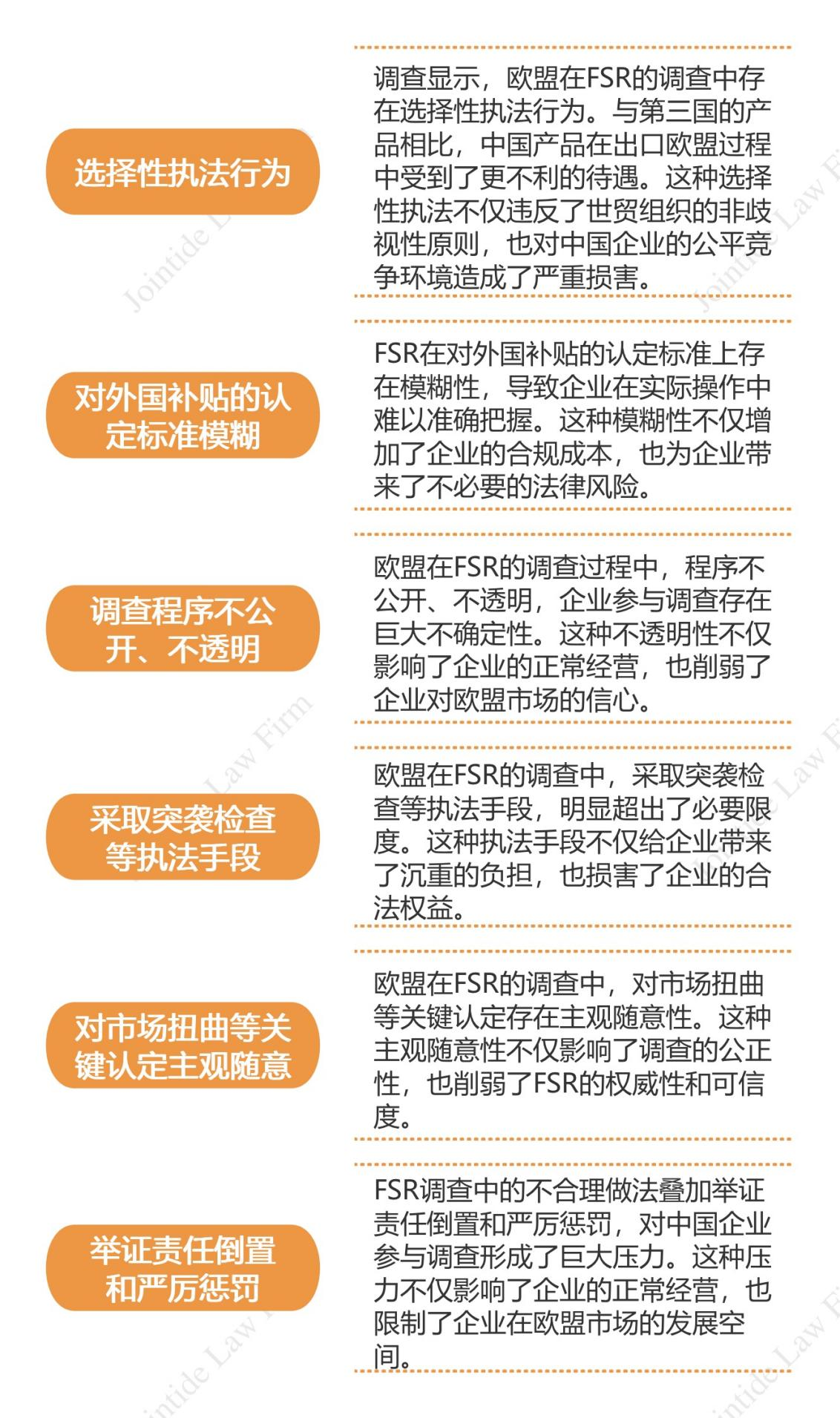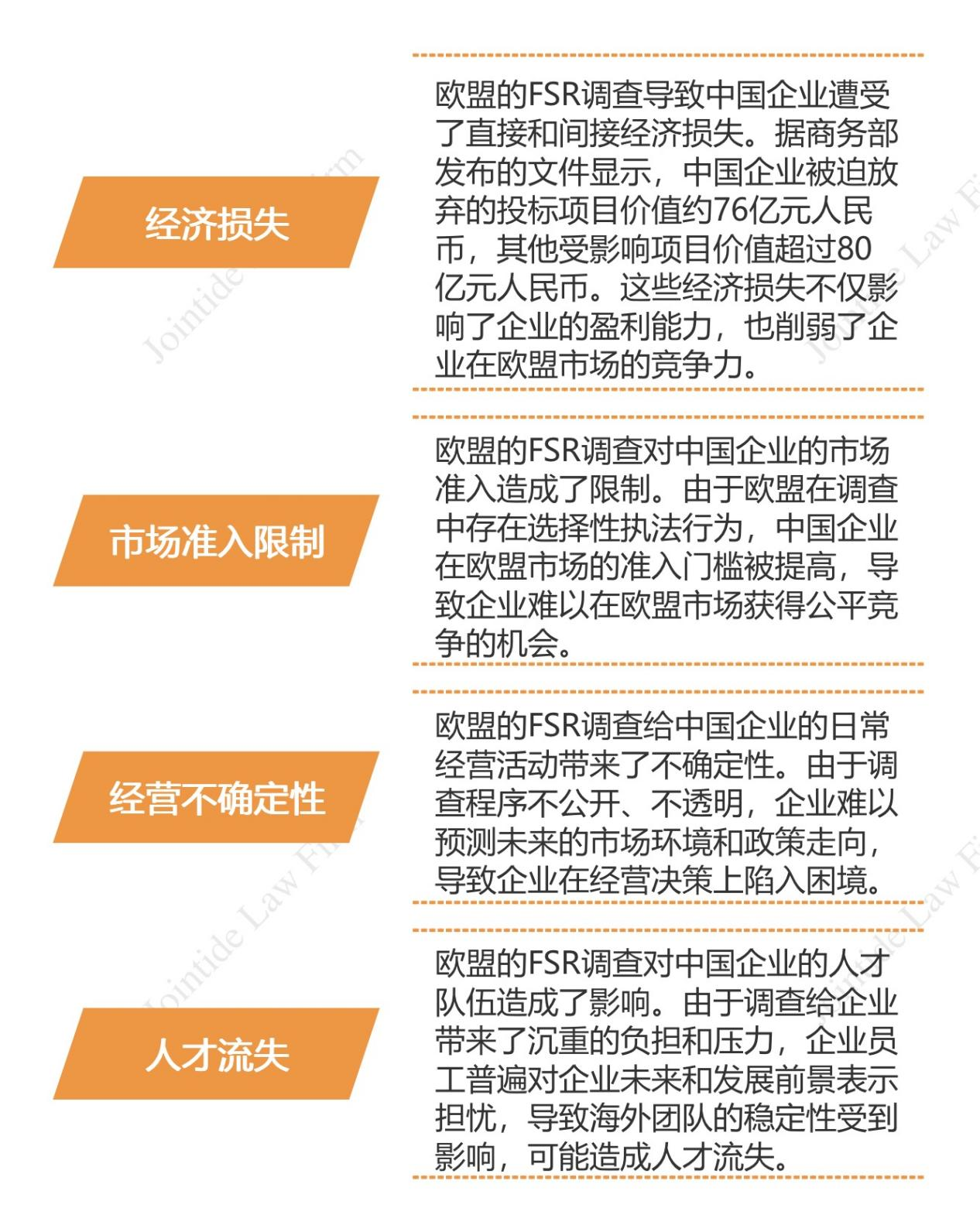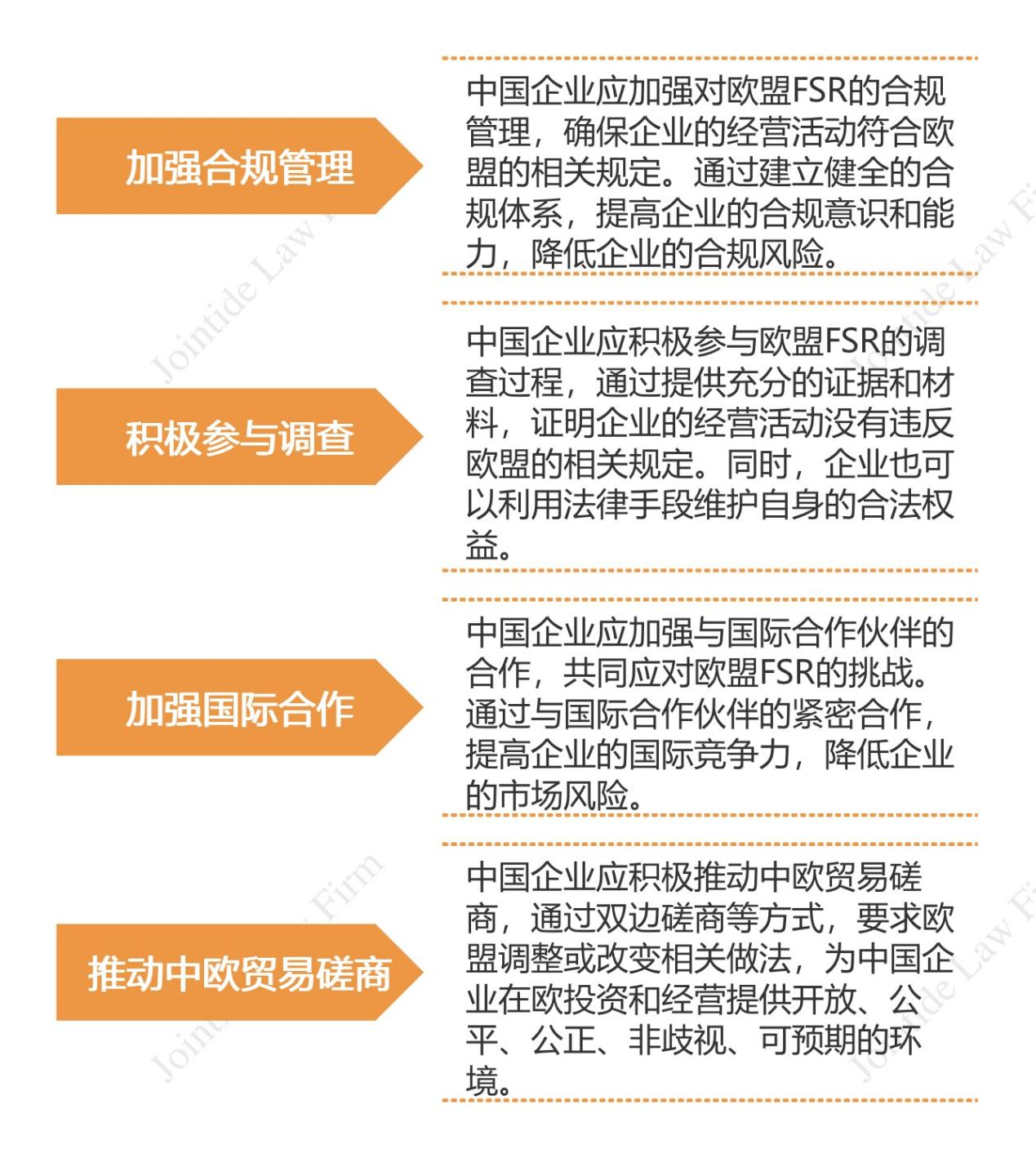International Legal Perspective | Interpretation of the Ministry of Commerce of China's Investigation Results: The Impact and Challenges of the EU's Foreign Subsidies Regulation on Chinese Enterprises
Published:
2025-01-15
On January 9, 2025, the Ministry of Commerce of China announced the results of its investigation into the European Union's implementation of the Foreign Subsidies Regulation (FSR). It concluded that the EU exhibited selective enforcement behavior during the execution of the FSR, which has harmed the competitiveness of Chinese enterprises in the EU market. This conclusion not only reveals new challenges in China-EU trade relations but also provides important references for Chinese companies on how to respond to the EU's trade barriers.
Introduction
On January 9, 2025, the Ministry of Commerce of China announced the results of its investigation into the European Union's implementation of the Foreign Subsidies Regulation (FSR), concluding that the EU's enforcement of the FSR involved selective law enforcement, which harmed the competitiveness of Chinese enterprises in the EU market. This conclusion not only reveals new challenges in China-EU trade relations but also provides important references for Chinese enterprises on how to respond to the EU's trade barriers.
1. Background and Effectiveness of the EU Foreign Subsidies Regulation
The EU Foreign Subsidies Regulation officially came into effect on January 12, 2023, and began implementation on July 12, 2023. The regulation aims to prevent foreign subsidies from distorting the internal market of the EU through regulation, thereby protecting a fair competitive environment for EU enterprises. However, since its implementation, the FSR has sparked widespread attention and controversy, particularly regarding investigations into Chinese enterprises, which have become a focal issue in China-EU trade relations.
The core of the FSR lies in its broad definition and strict enforcement mechanism. According to the FSR, foreign financial support includes not only direct grants but also various forms such as tax incentives and financing arrangements. This means that any measures that could be considered foreign financial support may be subject to investigation and restrictions by the EU.
2. Investigation Results of the Ministry of Commerce of China and Improper Conduct of the EU
On July 10, 2024, the Ministry of Commerce of China initiated an investigation into trade and investment barriers related to the EU's FSR practices and announced the final conclusion on January 9, 2025. The investigation results indicated that the EU engaged in multiple improper behaviors during the enforcement of the FSR, constituting trade and investment barriers.

3. Impact of EU Improper Conduct on Chinese Enterprises
The improper conduct of the EU during the enforcement of the FSR has significantly impacted the economic interests, market position, and competitiveness of Chinese enterprises.

4. Response Strategies of Chinese Enterprises

5. Conclusion
The investigation results of the Ministry of Commerce of China regarding the EU's implementation of the Foreign Subsidies Regulation reveal the improper conduct of the EU during the enforcement of the FSR and the significant impact of these actions on Chinese enterprises. In the face of this challenge, Chinese enterprises need to adopt proactive response strategies, strengthen compliance management, actively participate in investigations, enhance international cooperation, and promote China-EU trade consultations to safeguard their legitimate rights and market position; seeking assistance from professional lawyers is also an important guarantee for ensuring corporate compliance and controlling legal risks. At the same time, both China and the EU should strengthen communication and cooperation to jointly promote the healthy development of China-EU trade relations.
Key words:
Related News

Zhongcheng Qingtai Jinan Region
Address: Floor 55-57, Jinan China Resources Center, 11111 Jingshi Road, Lixia District, Jinan City, Shandong Province



